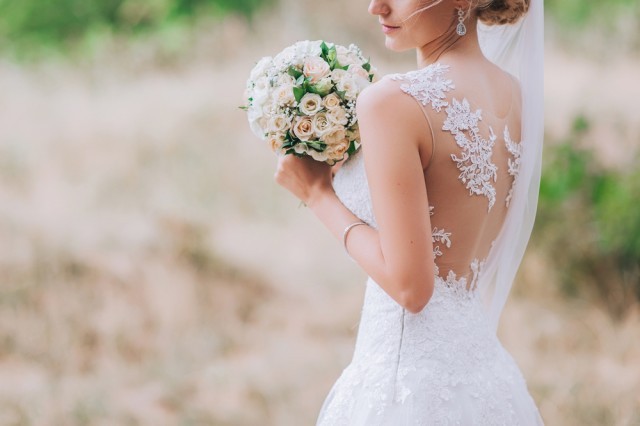Many of our present-day wedding traditions come from religions and cultures across the globe. If you’re working in the event management industry or simply planning your own wedding, you might be interested to learn more about some of the most prevalent contemporary wedding customs. Read on.
Traditional Jewish chuppah
The four-pole canopy or tapestry is a ceremonial item that the bride and groom stand under, and it symbolizes their new home. A chuppah can be rented, borrowed, or may be passed down by the couple’s families. It can also be made custom for the big day. This is the focal point for the religious part of the ceremony and makes a great photo opportunity.
Fun fact: A Jewish couple may get married by a rabbi anywhere a chuppah is erected.
Greek Orthodox “crowning”
During a Greek Orthodox ceremony, a “crowning” occurs. Both the bride and groom wear a ceremonial crown that symbolizes the glory and honor that is bestowed upon them during the ceremony. When working with a couple who plans to marry in a church or religious venue, the rules and regulations are set by the officiate of that church. Try to find ways to personalize the ceremony for your clients within the rituals and rules of the religion.
Fun fact: The thin crowns, known as stefana, are joined by a ribbon that ties the couple together and signifies their unity.
Blog: How To Save Money On Your Wedding
Mehndi painting ceremony
This ceremony is a traditional part of the beautification process of a bride before a Hindu wedding. Mehndi is a form of body art in which decorative designs are painted on a bride’s body; usually the hands and feet. The ceremony usually takes place the day before the wedding and can take many hours to complete. The paint is made from the Henna Plant. Mehndi artists may be hired for the entire bridal party for a day of fun and beauty, and the henna art usually lasts five to ten days before it wears off.
Fun fact: Traditionally, the groom’s initials will be included in the Mehndi painting. In ancient India, this would have been the only clue as to the name of the bride’s new husband, since most marriages were arranged and brides did not meet their spouse until their wedding day.
White wedding dress
Though we’re quick to associate a white gown with an American wedding, traditionally, a bride did not wear white. In early America, brides wore their Sunday finest, a dress they made with their own spinning wheel. Today, it takes nine to twelve months to order a wedding gown, because most are custom made, and the bride will need time to include fittings.
Fun fact: It wasn’t until Queen Victoria of England married Prince Albert in 1840 that we started seeing the tradition of a white wedding dress. Earlier Queens of England were married in heavy brocades, but Queen Victoria wore a white lace wedding dress, stunning the English press and changing fashion forever.
Auspicious wedding date (and a gift!)
In Chinese culture, people depend on ancient traditions to pick their engagement and wedding dates. Couples consult a Chinese calendar that is published far in advance to choose their date wedding date. The dates are based on the bride’s zodiac and will suggest dates to avoid. The Chinese believe that by choosing a lucky date, the couple will have good luck in their marriage.
Fun fact: If you are attending a Chinese wedding don’t forget the “red packet” or red envelope! In Chinese culture, guests give the couple money, usually about the same amount that their dinner plates would cost, to help pay for the wedding.
Want to learn more about earning your bachelor’s degree in Sports, Entertainment, Event — Management? Complete the “Request Info” form on this page or call 855-JWU-1881.
